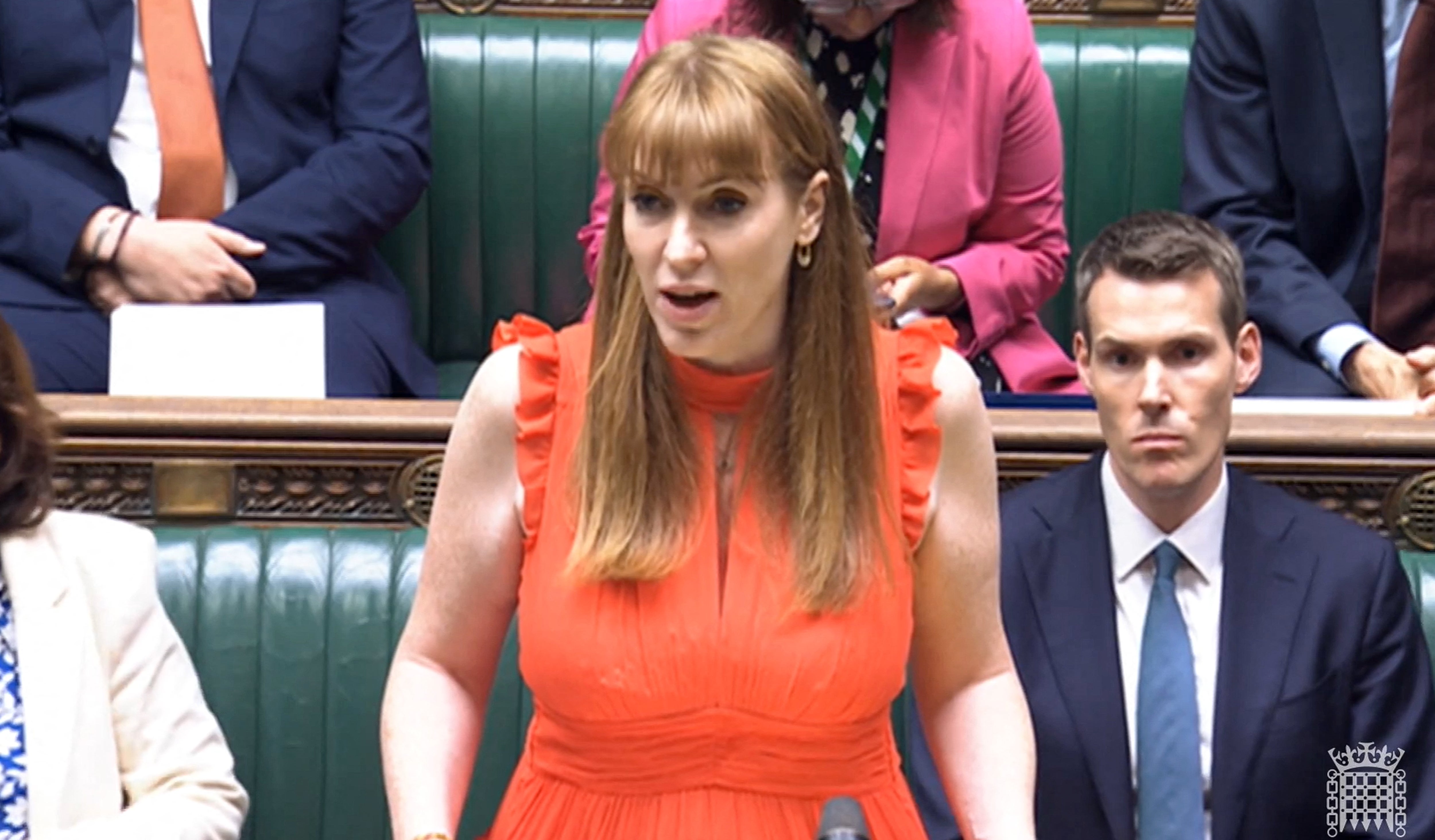Sidelined? No – Angela Rayner’s ambitious housing plan may be the making of her
The new deputy prime minister’s first big outing in the Commons was her chance to prove that she has not been pushed to the political margins by Keir Starmer and Rachel Reeves – and she delivered in spades, says John Rentoul


Definitely not sidelined at all, deputy prime minister Angela Rayner was allowed to deliver a very important statement and introduce a major piece of legislation on the last day before the House of Commons broke up for its summer recess.
Her statement was overshadowed by the continuing row over Rachel Reeves’s tough and dramatic announcement the day before. But Rayner copied “my right honourable friend, the chancellor” by condemning the Conservatives for their legacy – in her case, for leaving behind “the most acute housing crisis in living memory”.
Rayner said her task was “urgent” and that the record numbers of people in temporary accommodation was “unforgivable”, but she didn’t quite match Rachel Reeves’s stern fury of the day before.
Rayner, like Reeves, accused the Conservatives of having “ducked” the difficult decisions, which meant that the new Labour government had no choice but to take “radical” action.
She said that she, like Reeves, had asked her civil servants to review the state of the problem that she was inheriting, and said: “I can now reveal the results.”
She said that the Tory government had at no point got “anywhere near” its target of building 300,000 homes a year. The figure for new homes is “likely to drop below 200,000 this year”, she solemnly informed the Commons.
The trouble is that this doesn’t sound too bad: the Tories may have presided over the building of too few houses but their record is not terrible. Indeed, it will be difficult for the Labour government to raise the level of house building significantly.
Kemi Badenoch, Rayner’s shadow, described Labour’s aim of 370,000 new homes a year by the end of this parliament as a “distant aspiration, rather than a meaningful target”.
Badenoch also criticised Rayner for downgrading the target for London from 100,000 a year to 80,000, but Rayner had already pre-empted her by listing four arguments against her policy and rebutting each in turn. The London target compared with 35,000 that had been delivered in the last year, she said, and was “still a huge ask”.
She did not convince sceptical Conservative MPs, who think she has pushed national targets out of London and into rural and suburban areas – such as the ones they represent.
But Badenoch’s clash with Rayner was mild compared with the locking of horns between Reeves and Jeremy Hunt, the shadow chancellor, the previous day, which escalated into Reeves accusing him of having “lied”. Rayner airily patronised her opposite number, by wishing her well in the Tory leadership contest and saying: “She seems to be taking to opposition very naturally.”
It was a measure of another important change in the new House of Commons that journalists paid attention to what Daisy Cooper, the Liberal Democrat deputy leader, had to say. She is second-in-command of a parliamentary party of 72, mostly representing the kind of Tory-minded southern English constituencies where the clash between national targets and local nimbyism is likely to be sharpest. Unfortunately, Cooper asked a lot of questions, neither supporting nor opposing the new government’s ambitious plans, so we will have to wait and see how this tension plays out.
But if Rayner does succeed in getting a lot of houses built, she could be a force to be reckoned with. Reeves has so far been the dominant minister, second only to Starmer in the Labour cabinet, but that may be because she has not yet been confronted with the irreconcilable difference between her promises not to raise taxes and the reality of the public finances.
After Reeves has tried and failed to live down her promises not to take away pensioners’ winter fuel payments, not to raise taxes, and to generate the highest rate of economic growth in the G7, Rayner’s star may rise.






Join our commenting forum
Join thought-provoking conversations, follow other Independent readers and see their replies
Comments